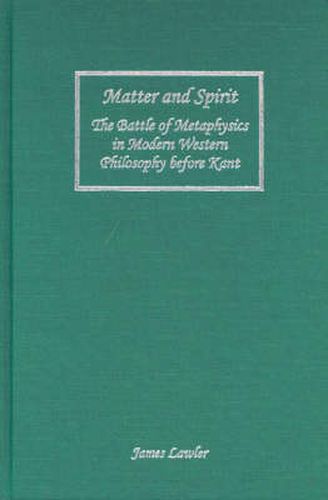Readings Newsletter
Become a Readings Member to make your shopping experience even easier.
Sign in or sign up for free!
You’re not far away from qualifying for FREE standard shipping within Australia
You’ve qualified for FREE standard shipping within Australia
The cart is loading…






This history of early modern Western philosophy takes its inspiration from Kant’s claim that the battle between the metaphysics of matter and that of spirit is the principal axis around which modern philosophy up to his time, in all its aspects, has revolved. The empiricist-materialist trend that dominates in England is first examined in the progressively unfolding works of Hobbes, Locke, Berkeley, Hume, and Adam Smith. A contrasting and competing dialectic develops in the rationalist/spiritualist trend in the continental philosophy of Descartes, Leibniz, and Rousseau. Framing this history is the background context of the philosophy and science of Aristotle and the challenges to the traditional paradigm presented by the revolutionary sciences of Copernicus, Galileo, and Newton.
James Lawler is Professor of Philosophy at the State University of New York at Buffalo.
$9.00 standard shipping within Australia
FREE standard shipping within Australia for orders over $100.00
Express & International shipping calculated at checkout
This history of early modern Western philosophy takes its inspiration from Kant’s claim that the battle between the metaphysics of matter and that of spirit is the principal axis around which modern philosophy up to his time, in all its aspects, has revolved. The empiricist-materialist trend that dominates in England is first examined in the progressively unfolding works of Hobbes, Locke, Berkeley, Hume, and Adam Smith. A contrasting and competing dialectic develops in the rationalist/spiritualist trend in the continental philosophy of Descartes, Leibniz, and Rousseau. Framing this history is the background context of the philosophy and science of Aristotle and the challenges to the traditional paradigm presented by the revolutionary sciences of Copernicus, Galileo, and Newton.
James Lawler is Professor of Philosophy at the State University of New York at Buffalo.